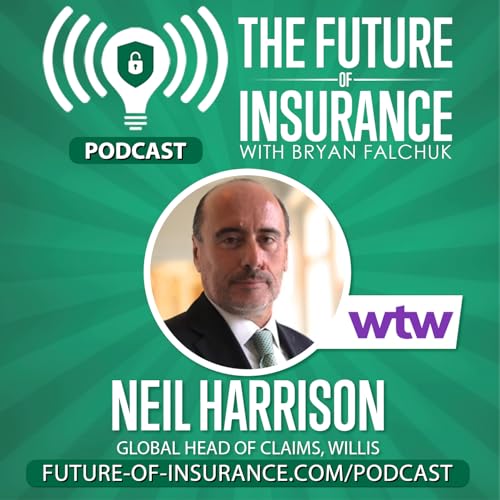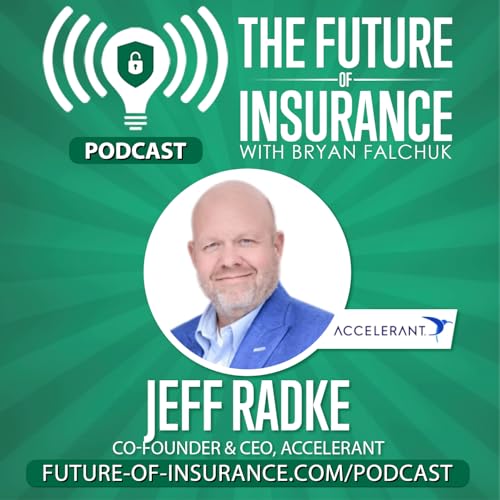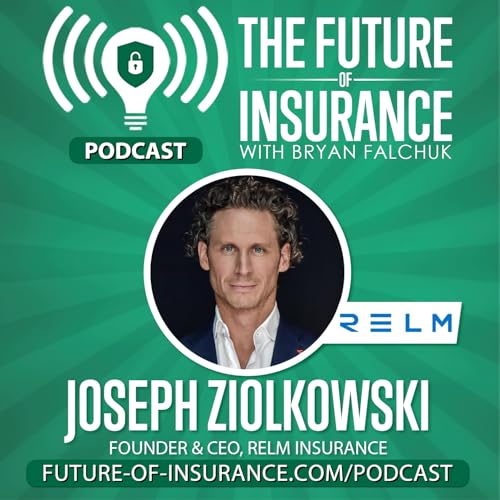Episode Info
Neil Harrison joined Willis in April 2024. He is Global Head of Claims, and a member of the company's Global Executive Team. Neil is based in New York. At Willis, Neil oversees all aspects of the company's claims propositions, services and solutions and participates in client, carrier management and innovation activities. Neil leads a group of 1400 claims professionals across all geographies, all lines of business and all client segments. The breadth and depth of Neil's role illustrate the importance Willis places on claims within the company's client and market facing propositions.
Prior to joining Willis, Neil spent over 30 years at Aon and predecessor companies, serving in a series of global leadership roles across many aspects of the business. Neil was Global Chief Claims Officer at Aon from 2018 until joining Willis in 2024. His previous Aon roles included senior roles in client leadership, broking, risk consulting and risk technology activities.
Neil started his career in London, and has at various times been based in Rotterdam, Chicago and New York. He has worked with clients and insurers around the world and has spoken at numerous industry events and conferences in, amongst other locations, US, UK, Australia, Canada, China, Colombia, Guatemala, India, Japan, Panama, Belgium, France, Germany, Netherlands, Spain, Singapore, South Korea, Sweden, Hong Kong, Philippines, Italy, Turkey, Argentina, Brazil and South Africa.
Episode Overview:
-
Claims as a Client-Facing Function: Willis views claims not as an operational back-office function, but as a crucial client-facing element that drives market propositions. This client-centric approach emphasizes achieving positive client outcomes.
-
The Broker's Role in Placement: The claims organization plays a vital role in placement strategy by assessing carrier performance and ensuring the efficacy of policy wordings. This proactive approach helps avoid disputes and ensures clarity for clients.
-
Navigating Complex Risks: The discussion highlights the increasing complexity of risks, driven by factors like climate change, cyber threats, and geopolitical instability. Harrison emphasizes the need for specialized expertise and a holistic view to manage interconnected risks.
-
The Art and Science of Claims: Effective claims handling requires a blend of technical knowledge and "art," including empathy, relationship management, and clear communication. This human element remains critical, even with the advent of AI.
-
AI's Evolving Role: While AI offers potential for efficiency and automation, its application in complex claims needs careful consideration. The focus remains on how AI can augment human expertise and improve client outcomes, rather than replacing them entirely.
-
Client Lens and Outcomes: The overarching principle for Willis's claims team is the "client lens," ensuring all actions directly impact client outcomes, both financially and through superior service standards.
-
Future Horizons: Looking ahead, the conversation touches upon the interconnectedness of global risks, the challenges of scaling specialization, and the evolving nature of insurance in response to technological advancements and geopolitical shifts.
-
The Importance of Collaboration: A key theme is the need for collaboration between brokers, insurers, and clients, particularly in understanding how various policy wordings interact and ensuring comprehensive coverage for complex, multi-layered risks.
This episode is brought to you by The Future of Insurance book series (future-of-insurance.com) from Bryan Falchuk.
Follow the podcast at future-of-insurance.com/podcast for more details and other episodes.
Music courtesy of Hyperbeat Music, available to stream or download on Spotify, Apple Music, and Amazon Music and more.
 30 m
30 m 38 m
38 m 26 m
26 m 10 m
10 m 30 m
30 m 29 m
29 m 28 m
28 m 13 m
13 m
